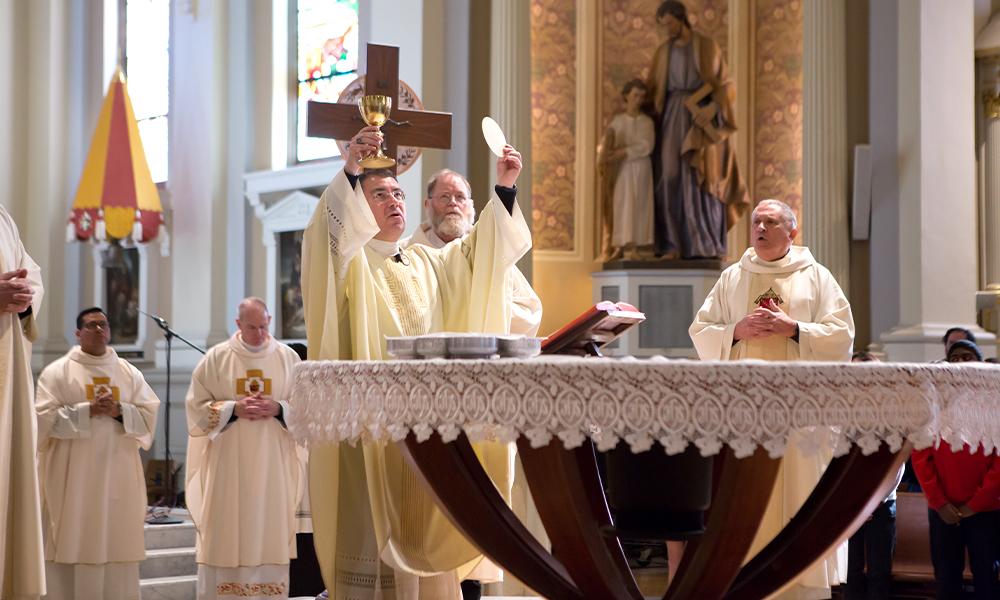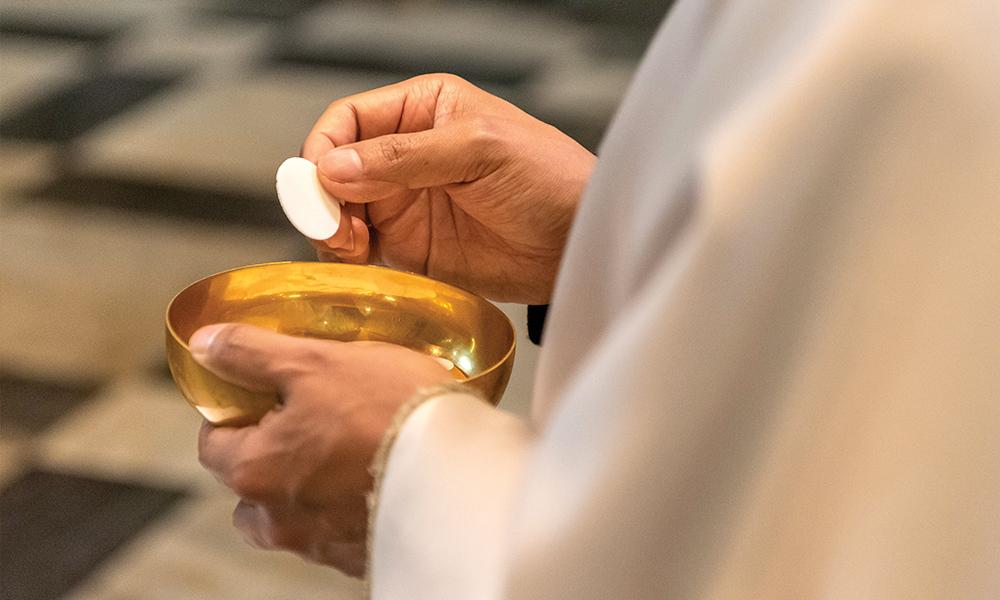
The Work of Human Hands Transformed
Dear sisters and brothers in Christ,
Dear sisters and brothers in Christ,
In the celebration of the Eucharist, the bread and wine presented on the altar are transformed into the body and blood of Christ. The Church refers to this change as transubstantiation, which means that while the appearance continues to be that of bread and wine, their substance has changed. They are no longer bread and wine but the body and blood of Jesus Christ. God allows this change to take place because he desires to remain with us to nourish us, strengthen us, and guide us. He wants to be with us because of his great love for us!
In his celebrated poem, “God’s Grandeur,” the Jesuit poet Gerard Manley Hopkins notes that the greatness of God is embedded in creation. He makes a veiled reference to Christ’s passion, death, and resurrection. Hopkins writes that God’s splendor “gathers to a greatness, like the ooze of oil crushed.” As olives are crushed to extract their oil, likewise, in the Garden of Olives, Jesus was “crushed” as he was betrayed by his disciple, arrested, and taken to his eventual torture and cruel execution.
It was most appropriate that God chose to remain with his Church in the Eucharist using the symbols of bread and wine. Let us, therefore, explore for a moment these symbols: bread and wine.
Bread and wine are not found in nature as those substances; grapes and wheat must undergo a transformative process to become bread and wine, like olives, to become oil. Grapes must be crushed, quite literally, and the juice must be fermented. Wheat must be ground, mixed with water, kneaded, and baked. These processes are what the Eucharistic prayers during Mass refer to as “the work of human hands.” Thus what is presented on the altar has already undergone significant preparation before being offered on the altar.
Because bread and wine are the work of human hands, they represent us – you and me, the Church that is called to gather around the altar to celebrate the Eucharist. And because grapes and wheat are crushed and ground, kneaded, baked, and fermented, these symbols evoke the passion, death, and resurrection of Jesus. Our own life experiences also sometimes parallel the crushing and fermenting, the grinding, kneading, and baking in a hot oven. When the bread and wine are presented on the altar, offered to God as a gift in the Eucharist, they are transubstantiated. They are transformed. You and I gathered around the altar are called to be transformed, as well, into the presence of Christ in the world, in turn, to sanctify the world. Thy kingdom come!
Bishop Oscar Cantú

